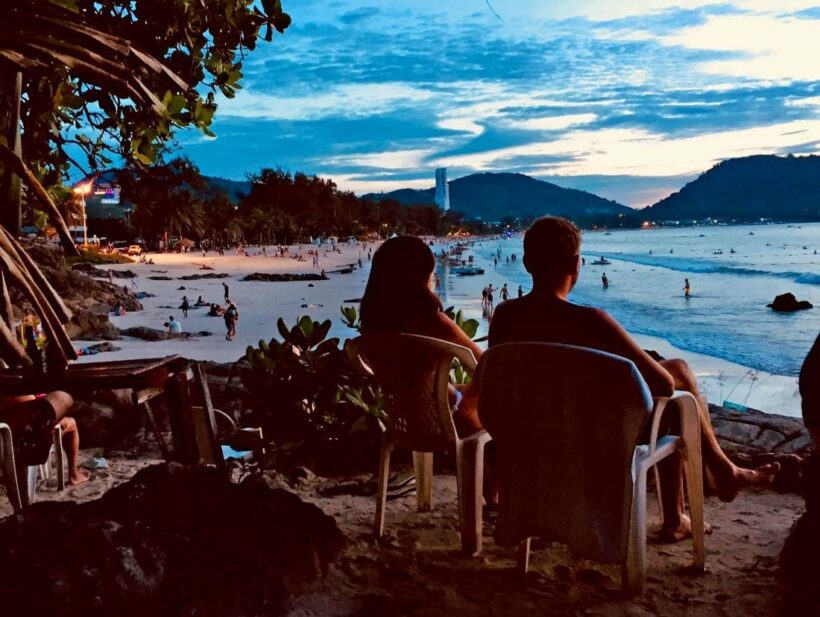Phuket’s tourist evolution – Diversity is the best option Part 2

by Guest Writer
Our guest writer has been managing resorts around Phuket for two decades and has represented his brand at international expos along with promotions for Phuket over the years. His knowledge is first-hand and steeped in local experience. He has asked to remain anonymous.
Read Part 1 of the report HERE.
In Part 1 of the article we looked at the changes and evolution of Phuket’s tourist mix, the rise of the Russian market, then the Chinese and now the drop of both. So what can we do to continue to lure the Chinese travellers?
We need to learn about the Chinese market and guest’s expectations in order to be able to develop products, services and welcome them. You will see many hotels sending their sales teams regularly to China to the main line cities plus secondary cities to entice new business and to regain the confidence in our Phuket hotel products. In our case, when sales teams come back, they are expected to debrief the operation teams on Chinese guest expectations and the feedback from partners on how we can improve the service and products in place for our Chinese visitors. How many business do any research about their customers and what they actually want?
Here are some figures covering January to May in 2018 vs 2019 for the same period, about visitors to our resorts:
• Chinese guests, dropped 26.17%, year on year to date
• Russian guests, increased 22.99% year on year to date (this was a case of several tour operators consolidating their hotels to reduce inventory)
• South African guests, up 4.48% year on year to date.
• Australia and New Zealand combined, down 33.14% year on year to date (Phuket competes head to head with Bali and South American islands. Price is the key to any packaging as guests tend to look at great value packages, and the money saved is then on hand to use once they arrive at the destination!).
The Thai Baht has had an effect on the ‘value for money’ traditionally associated with traveling to Thailand too. The Chinese Yuan end of June 2018 was holding at around 5.06 Baht per 1 Yuan, but today it is 4.46 Baht per 1 Yuan.
The Australian Dollar was nearing 24.75 Baht per 1 Dollar a year ago, but today is hovering at 21.30 Baht per 1 Dollar which has had a dramatic affect on the famous ‘deals’ which Australian travellers are so accustomed to and hotels rely on during the green season.
As the Indian market is now seen as a possible ‘mainstream’ market heading towards Thailand, hoteliers are being approached more and more to see if we are ready to welcome Indian guests. Traditionally heading to the more lively resorts, families are going to play an important part in future arrivals from the sub-continent too.
Once again, expect to see a change in beach choice for families as the market opens up and recent improved air links with several major cities in India and Phuket shows that the future is promising for this market. Once again, a market we need to learn about and do our homework on guest expectations whilst holidaying here.
We have seen much ‘price dumping’ recently in the market place. By doing this, if a 5* property starts doing this, the situation ‘dominoes down’ the line to 4*, 3* and so on. According to several partners both in China and Bangkok, this year has seen aggressive price dumping but as the overall demand is not there this is going to have a severe affect on future negotiations as it will be difficult to get prices up again in the future.
One way which many of us are coping with this is ‘value adding’ – by maintaining room rates but offering some inclusions or ‘give aways’ within the rate instead makes a product more attractive to customers. Rate averages after these inclusions (depending on how a hotel calculates them and allocates the charges) will reduce and this year we have already seen 2.67% lower average room rate ‘year to date’ compared to last year.
Packaging is also becoming a bigger norm with hotels offering set packages for several nights stay with some inclusions. This we have tried in several markets and the response has been good. 7 night stays with a few additional meals, cocktails, prepacked laundry before going home, for example. Hoteliers’ costing teams are working harder than ever before to make sure that such packages produce returns whilst offering guests excellent value for money!
As one of the most established Vice Presidents of Sales and Marketing mentioned a few months ago, traditional 2 year ahead contracts with tour operators is becoming less and less important as the market changes so rapidly these days. We need to work day by day or month by month to react to market demands more than ever before to ensure that we remain competitive, nimble and flexible.
As we enter the second half of 2019, sales team meetings are looking more and more at new emerging markets; at balancing the books by nationality with new channels of distribution both online and traditional holiday companies in more countries to ensure that resorts don’t rely on just a handful of nationalities as, after all, we really never know when some of our largest tourist-feeding nations decide to change their travelling habits.
As it becomes easier and cheaper to travel by air, and the number of countries, who are welcoming visitors and becoming openly competitive with Thailand, increases never forget that every visitor has a great choice of countries to visit.
We need to continually review our products and services to ensure that we are aimed at the correct markets, guest mix (families, couples, younger, older, etc) and today’s trends in travel.
Therefore we ALL need to ensure that we are top of our game and welcome guests with true Thai smiles and make sure that we provide a safe environment with excellent service plus offering superb value for money.
Finally we should never forget to show the true traditions of Thailand that have attracted visitors to the Land of Smiles for centuries.

Latest Thailand News
Follow The Thaiger on Google News:


























